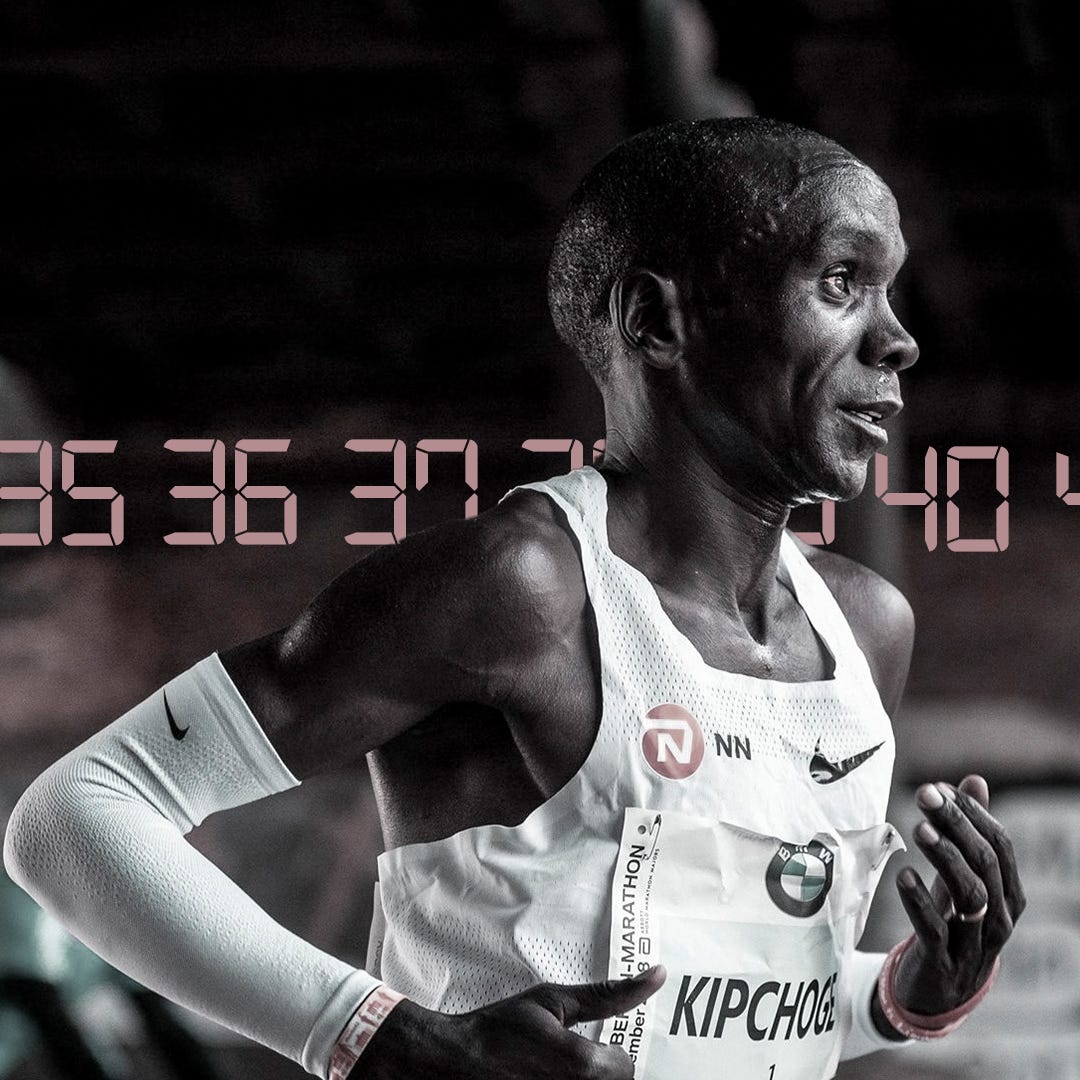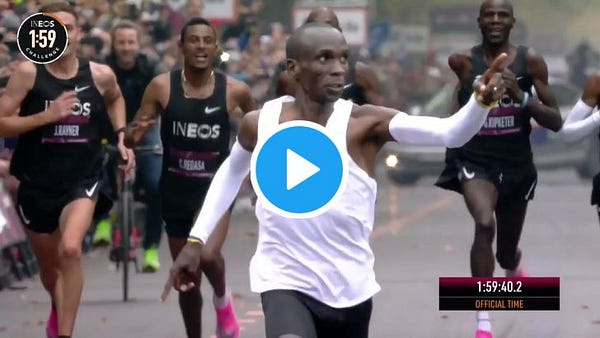
🎂Today is Eliud Kipchoge’s birthday.
According to the IAAF, the Kipper is blowing out 35 candles, placing him in the prime of a marathon runner’s career. His age makes sense, as he’s at the peak of his powers—just a month ago, he became the first person ever to dip under the two-hour barrier.
The warrior-monk of the marathon hasn’t made a single mistake in years, and seems unflappable. He even tends to smile during the most painful stretches of a race—it could be seen as showboating, but the guy just seems too damned nice.
His prime has thus far been a clean sheet of performances. Kipchoge is now only competing against himself in each race he enters (and sometimes literally against his own body and mind, as in the 1:59 experiment a few weeks back). In fact, he hasn’t been beaten once since entering his 30s.
Or has he?
Every time I’ve had a conversation about the mystical Kipchoge with anyone really connected in the sport, his age invariably comes up. “He’s at least 40” I was recently told by someone who has spent a lot of time training in Kenya. Another journalist who has spent time with Kipchoge said they wouldn’t be surprised if the world record holder is about five years older than what’s on his Wikipedia page.
His age has been a favourite troll topic on the LetsRun boards, and was openly discussed by fellow pros on Twitter last year, after Zane Robertson, a New Zealander who has lived and trained in Kenya for over a decade, tweeted that he believed Kipchoge was already north of 40:


This could be seen as jealousy by fellow athletes, cynicism by insiders weary of his sub-two-hour antics, or disgusting conspiratorial nonsense by the LetsRun truther crowd—but I get the sense that, for the most part, these commentators are all just damned impressed. The guy may be the greatest athlete ever, and he’s maybe doing it at a time when our bodies begin to betray us. Father Time is undefeated, after all.
So why is it that there’s uncertainly around his age?
If you follow the sport closely, this grey area regarding age is nothing new. Haile Gebrselassie, the last great ageless marathoner, was famously about five years older than what was on his passport. The common explanation is that East African countries haven’t traditionally kept very good birth records, particularly in the remote Rift Valley region, where Kipchoge was born, and certainly not 35ish years ago. When it came time to gain a passport, or some other form of official proof of age in order to compete internationally (usually at the junior level), athletes would provide a guesstimate of their age. This led to athletes and coaches taking advantage of this loophole in order to enter mature athletes into junior competitions, improving their chances of winning and moving on to a successful career afterward.
Kipchoge was a dominant junior, winning the World Cross-Country Championship at 18. He also ran 12:52 in the 5,000m that year, a junior world record at the time. The following year, as a 19 year old, he won the 5,000m world title on the track, beating both Hicham El Guerrouj and Kenenisa Bekele, two others in the all-time great discussion.
The fact that he may not have been a teenager at that time doesn’t detract from the performances themselves and his incredible ascent in the sport (although, I imagine whomever placed second to Kipchoge at junior meets may feel differently if this is the case). And if he’s actually closer to 40 today, it makes his most recent performances all the more jaw-dropping.
Maybe Kipchoge is actually just a plain ol’ 35 year old GOAT. But if he’s in fact defying both the previously assumed limits of human performance and also kinda “old,” that’s even more fascinating. And good news for all of us who are, in fact, older than him.
Whether he’s 35, 40 or in fact a benevolent running machine sent from the future to inspire us all, the Kipper proves the lame-old cliché: that, yes, age is sometimes just a damned number.
Here’s to Eliud Kipchoge on his… 35th birthday!
-Michael Doyle




